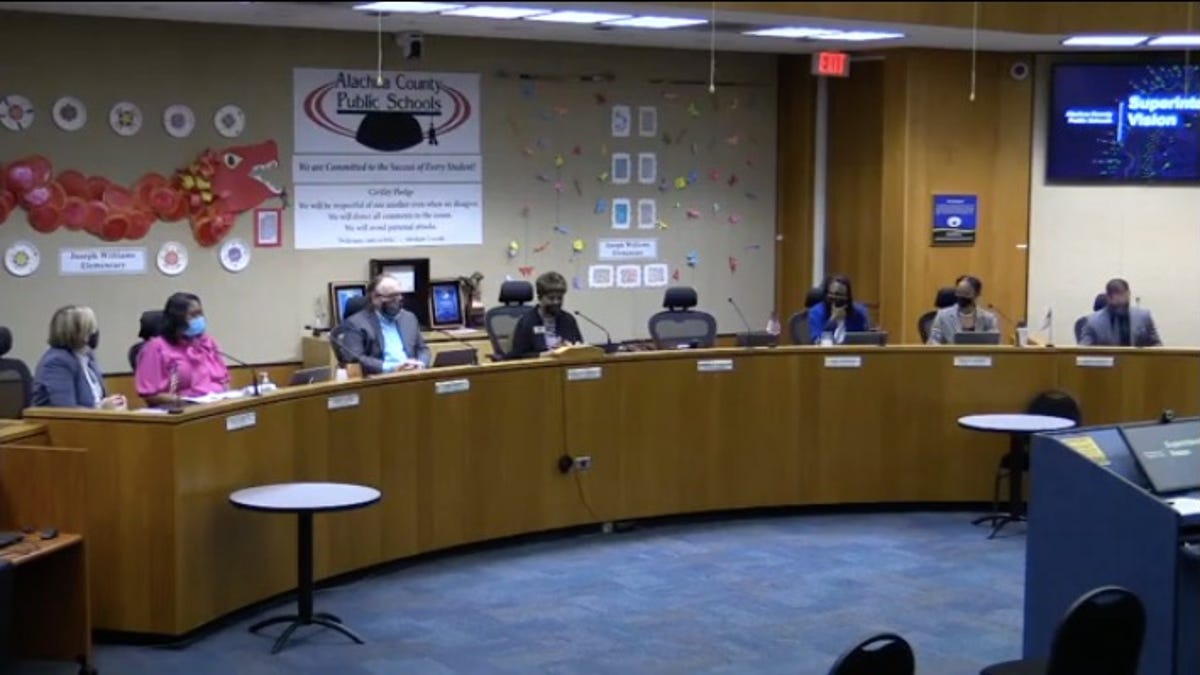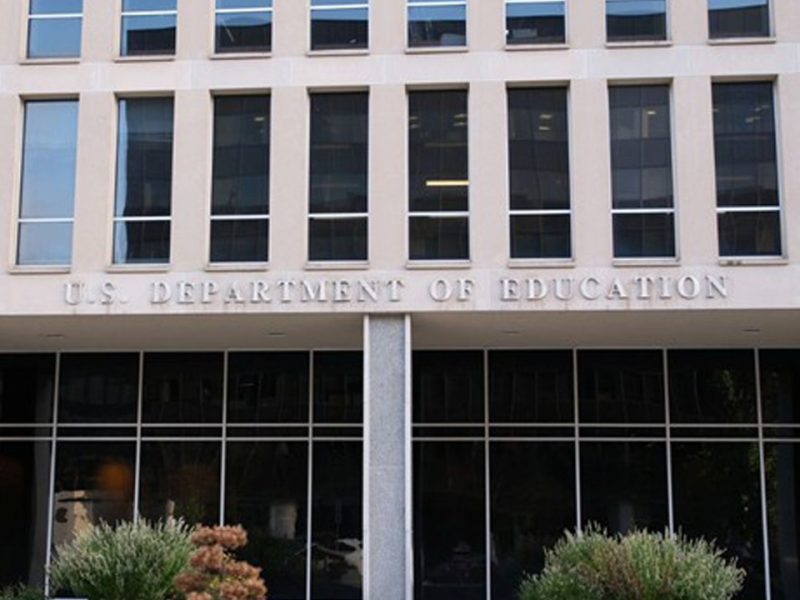Alachua County schools workshop turns into discussion over possible Sunshine Law violation
The Gainesville Sun | By Gershon Harrell | January 6, 2022
What was supposed to be a meeting about a new tool to evaluate the Alachua County Public Schools superintendent became a meeting on whether board members were in violation of the state Sunshine Law.
The discussion stemmed from a Tuesday email exchange between Superintendent Carlee Simon and School Board Members Robert Hyatt and Gunnar Paulson. Board Members Mildred Russell, Tina Certain and Leanetta McNealy were also copied on the email chain.
The exchange between the superintendent and the two board members regarded meeting minutes from Dec. 7. Hyatt and Paulson wanted the minutes before Wednesday’s special workshop, where Simon was supposed to introduce her rezoning of Idylwild and Metcalfe elementary schools, and board members would discuss Simon’s evaluation.
Certain raised concern over whether there had been a Sunshine Law violation after a series of made her feel uncomfortable, she said.
“I thought it would violate Sunshine because we have not adopted the minutes yet. And any agreement and discussion that we had, we didn’t vote on that,” Certain said to the board Wednesday.
She also said that before the meeting was in session she overheard Gunnar and Paulson talking about the agenda minutes from Dec. 7 and the superintendent’s evaluation, which she felt was also a violation of the state Sunshine Law, which requires matters before elected bodies be discussed only in public.
Hyatt said at the board meeting he is very sensitive to the Sunshine Law and he has never been involved with breaking it.
“I have found since I have become a board member … as soon as you’re (a board member) elected, the Sunshine Law applies,” Hyatt said, to the board.
According to the Florida statutes, school board members should not meet on actions of policy without being in a public setting or giving reasonable notice of such meeting.
Attorney David Delaney said Certain did express her concerns before the meeting started, and he told Hyatt that any item that could come up for a vote should not be discussed until the gavel comes down.
Delaney did not specifically say if there had been a violation. However, in the matter of the emails, he stated that any board member can individually email the superintendent to request an item be placed on the agenda.
“It’s generally a recommended best practice not copy other board members on emails because, at any time, a board member could respond and say something that seems innocuous, like, ‘I think that’s a good idea,’ or, ‘perhaps I would be in favor of that,'” Delaney said to the board.
Timeline of emails
An 8:30 a.m. email was sent out Tuesday by Paulson to Simon. He requested the minutes from the Dec. 7 meeting for Wednesday’s special board meeting.
The email was also sent to all board members through their general email account.
Simon responded approximately 20 minutes later stating that the minutes aren’t required until the week before the next official board meeting and said, “These minutes would not be approved by the board at tomorrow’s workshop to use as reference.”
Simon also said that on Dec. 7, the YouTube feed cut out, and the staff wouldn’t have the video to pull from.
Hyatt responded at 1 p.m. requesting that “every reasonable” effort be made to have the Dec. 7 school board meeting notes available for Wednesday’s special board meeting.
Simon responded to Hyatt’s email stating that she didn’t ask the staff to work over holiday break, and that due to the approval of minutes not being an item on the special board meetings agenda, it wasn’t required for the meeting. She also attached a policy on conducting special board meetings.
Hyatt returned Simon’s email stating that he also didn’t expect employees to work holidays or weekends, and that if the minutes couldn’t be given it was understandable.
Paulson later said in an email that the minutes from the Dec. 7 meeting would have been helpful since the video was not available. He further went into how Simon asked for an extension of her evaluation back in August.
The reason for the extended evaluation was so that board members could evaluate her based on a full year’s performance rather than a six-month performance from the time she ascended to the role in December.
School Board Attorney David Delaney stepped into the email exchange stating school board policy states the minutes would be required at an “actual” board meeting and not a workshop.
“Moreover, issues for a school board vote should be listed on the agenda for those meetings. It is not a recommended best practice for boards to work from or make decisions based on unadopted unofficial meetings,” Delaney said.
The superintendent’s evaluation
At the special board meeting, Simon introduced document that the board members would use to evaluate her performance.
The 13-page form has 43 questions with a grading scale of one through nine, from “needs improvement” to “excellent.”
The evaluation has to be submitted by board members by Feb. 1 with their own narratives of the superintendent’s performance.






